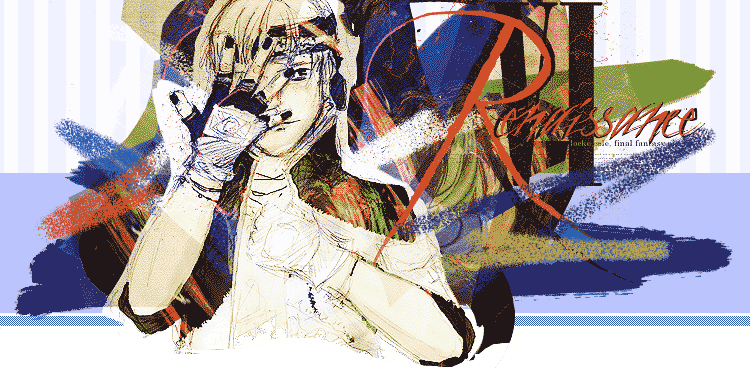
Fairy Tales
What do you believe in?
Childhood leaves a mark. How many times has a movie, book, or video game try to make a villain sympathetic by giving him a crappy childhood? I don't want to say our upbringings are inescapable, but I know that I still remember all the words of the Captain Planet theme to this day. In the words of Howard Pyle:
The stories of childhood leave an indelible impression, and their author always has a niche in the temple of memory from which the image is never cast out to be thrown on the rubbish heap of things that are outgrown and outlived.
Okay, here I'm really reaching back into the murky past of Locke, before any of the in-game events and probably a decade or so before Rachel. There's only one detail the game gives us about his past, so I think it must be important. And that's that he had a grandmother, who told him stories.
"My grandma used to tell me stories about magical machines... Could they have been true?"
"But Grandmother once told me that Espers and people once lived side by side. Was that just a fairy tale?"
"Behold... A legendary relic that can restore life...Legend has it that ages ago the Phoenix was turned into stone... And many legends are based on facts..."
When Strago recounts the history of the Mage Warriors, Locke who knows their history already. Outside of the old man, the treasure hunter's got a much better grasp on all things legendary than anyone else in the party. After all, a legend is just what he's chasing. Now, that's not a lot of information about Locke and his fairy-tale studded past, and it could just be a coincidence. But I don't think so- the FFVI script was carefully chosen, giving the characters as much depth with as little dialogue as possible. And when the script was translated, it had to be cut down even more, to fit on the SNES console. The importance of old stories and legends comes up a few times in the game. The opening sequence tells the story of the War of the Magi, 1000 years ago. And when Terra needs to be convinced to join the fight against the Empire, Banon tells her a familiar myth:
Perhaps you've heard this story? Once, when people were pure and innocent, there was a box they were told never to open. But someone went and opened it anyway. He unleashed all the Evils of the world: Envy... Greed... Pride... Violence... Control... All that was left in the box was a single ray of light: Hope.
Stories, of course, give us a pleasant diversion, but they also give us a meaning, a reason, a starting point. Locke knows all the legends, so he knows everything about the unlikely hero saving the world and getting the girl in the end, and the inevitable happily ever after. He also knows of treasures and magic, of machines and battles. I don't think it's a stretch to say that listening to all these tales gave him a thirst for adventure that got himself treasure hunting in the first place. Like all children, he imagined himself in the hero's place as the story was being told.
Neither is it much of a stretch to say that at some sub-concious level, he began emulating those old heroes. Locke acts like some knight out of an old tale of chivalry, and I don't think that's a coincidence. Furthermore, I don't think that Square's simply transplanting the archetype and sticking it into their game. Locke's character is only a pale imitation, a deliberate commentary. After the loss of Rachel, he embarks on his noble quest to save the world from the Empire, and later on his more personal quest of atonement, trying to find the world's greatest treasure. All of this is very much in the traditional heroic line, and of course, there is his need to protect women. But for all that, Locke isn't the hero of the story or even much of a hero at all. His motivations for self-sacrifice are base and self-serving, and he's begun to believe his own lies. That's where the irony lies, because Locke is condemnation and celebration both at once. In trying to emulate Lancelot, Locke has become Don Quixote. And his own story is about him becoming the person he pretends to be.
Of course, like the Lord of La Mancha, he eventually snaps out of it, but I doubt he ever goes so far as to renounce the old stories completely. No, like all idealists, he mixes history with nostalgia. He still has a longing for adventure, for sure, and he does save the world and all. Because he knows that some legends are based on fact, I think eventually he realizes that some legends are more than fact-- they are truth. Truth, in the glorious sense that you can have a happy ending, even after a world of sadness.